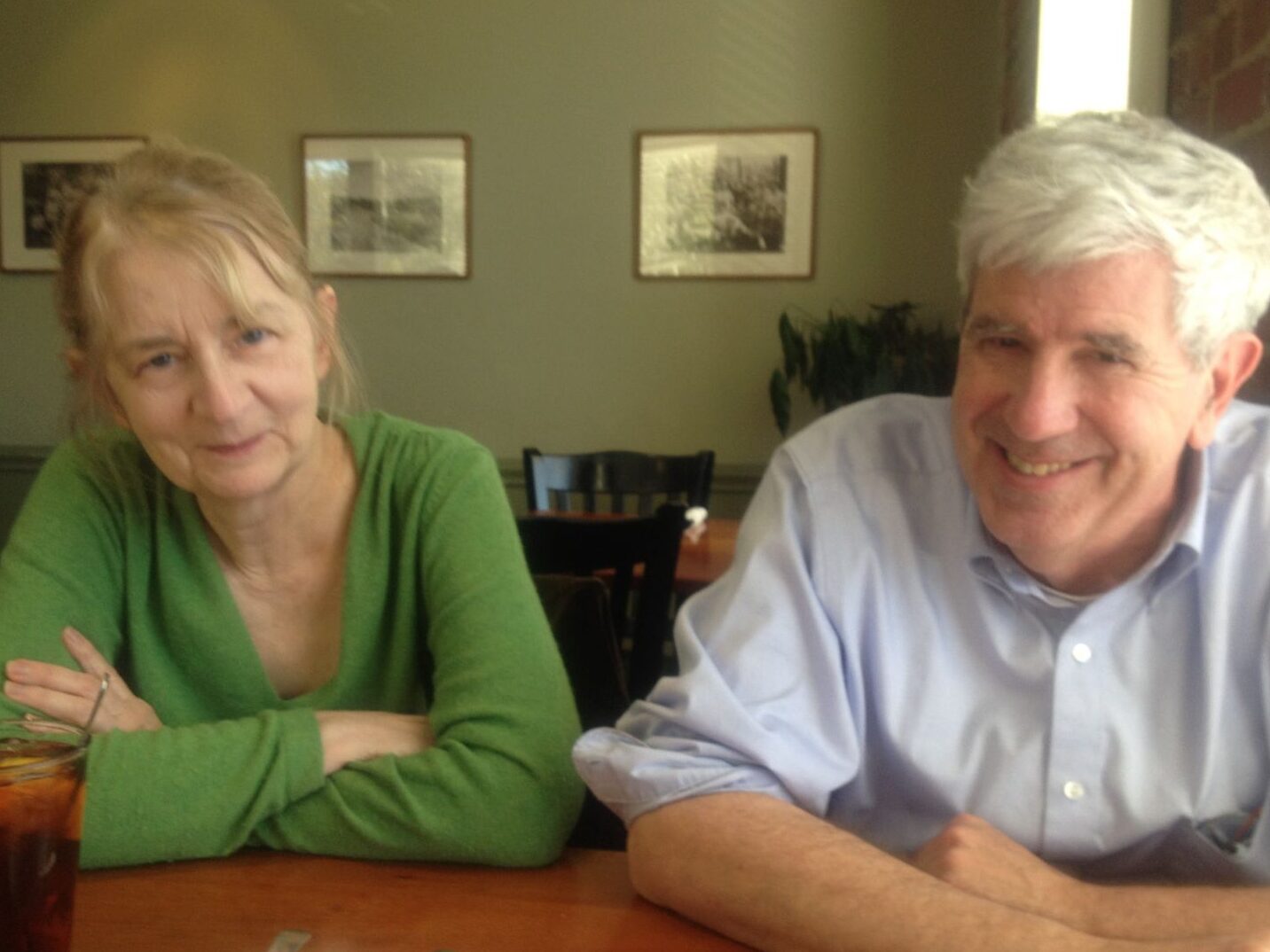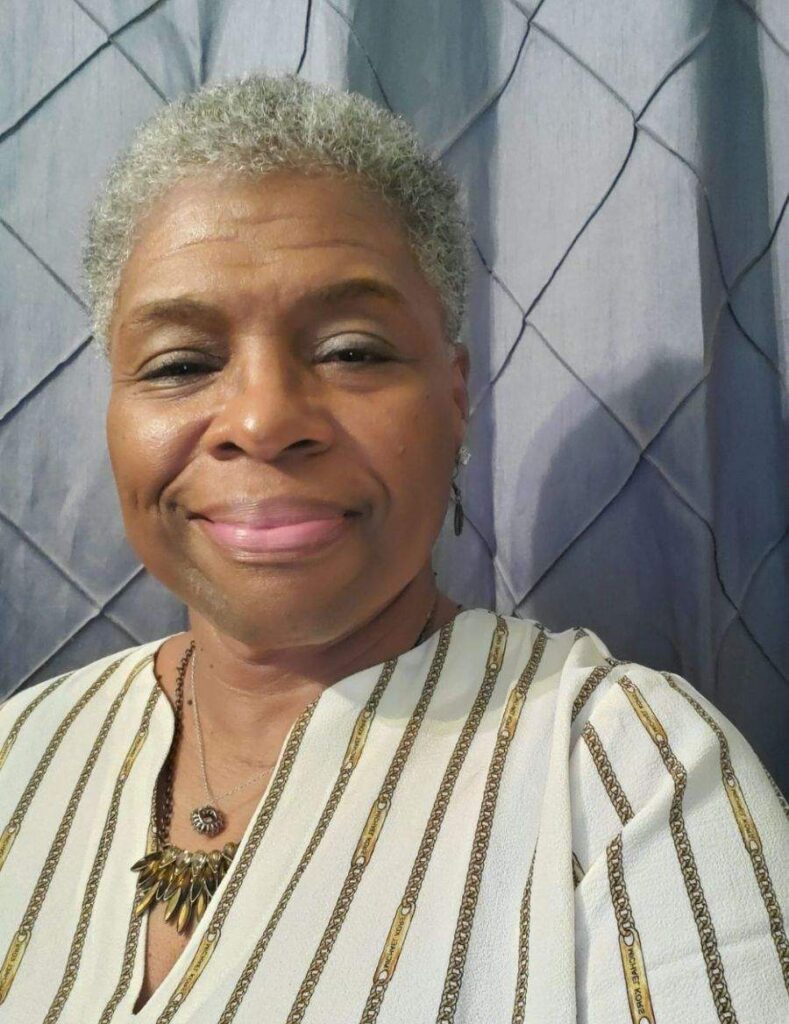Each year, we give an award in honor of J. Kirk Osborn, one of the giants of North Carolina’s capital defense community, whose advocacy and deep compassion for his clients saved many lives and inspired other attorneys to follow in his footsteps. We also give the Messenger of Light Award to people who make significant contributions to our work and our clients.
The J. Kirk Osborn Award: Marilyn Ozer and Bill Massengale
The winners of the 2023 J. Kirk Osborn Award for outstanding leadership in capital defense are the extraordinarily deserving duo of Marilyn Ozer and Bill Massengale. Marilyn and Bill were longtime law partners who saved many people from execution, freed a client who had been sentenced to death based on extremely questionable evidence, and worked to address racism in their home town of Chapel Hill. Their partnership lasted until Bill’s death in December. His family will accept his award posthumously.
Over three decades of working on capital cases, Bill and Marilyn were on the front lines of the fight against North Carolina’s death penalty. They endured the heartbreaking executions of two clients, William “Bugs” Powell and Ronnie Frye. Mr. Frye’s case was particularly painful, since his trial lawyer drank through the trial and never presented evidence that could have swayed the jury to vote for life. Bill and Marilyn dug up compelling evidence that jurors never heard, including a photograph of Mr. Frye when he was a bruised and battered nine-year-old child. Local law enforcement authorities had used the photo to train staff in recognizing signs of child abuse. Tragically, during North Carolina’s decades of rapid-fire executions, the courts shrugged their shoulders.
However, during those same years, Bill and Marilyn also saw many successes that saved the lives of clients who might otherwise have been executed. In 1993, they won a remand from the US Supreme Court in the case of Marvin Williams. Ultimately, Mr. Williams’ life was spared because of his intellectual disability. Mr. Williams never forgot Bill and Marilyn and regularly sent them beautiful artwork he had created. Numerous other clients were either removed from death row or avoided death sentences thanks to Bill and Marilyn’s expert case work and knack for building trust with their clients.
More recently, they represented Mike Ryan, who spent seven years on death row after being convicted based on falsified DNA evidence. Because of Bill and Marilyn’s dogged investigation into both the flawed DNA evidence and the bullying of several alibi witnesses, Mr. Ryan was granted a new trial in 2017. However, the State appealed, and Marilyn successfully argued the case in the NC Supreme Court in 2019. Finally, in March of this year, the prosecutor agreed to settle the case for second-degree murder and a sentence very close to time served. Mr. Ryan was freed in May and is living in Florida with his fiancee.
Bill and Marilyn were also involved in suing the Chapel Hill Police Department for the racist 1990 “Readi-Rock” raid in which dozens of law-abiding Black club patrons were illegally searched and arrested by police wearing black masks and camouflage. Many in the club believed they were being robbed by vigilantes. Shortly before Bill’s death, the town of Chapel Hill formally apologized for the raid.
Through all their years of practice, Bill and Marilyn’s empathy for their clients was boundless. They remained good-humored and relentless in their fight for justice. Marilyn continues to represent clients facing the death penalty and serves as a consultant to capital trial lawyers throughout the state.
The Messenger of Light Award: Patricia Carrington
Patricia Carrington retired in June after 25 years as a correctional officer at Central Prison. During her more than two decades of service, she became known as a beacon of compassion and kindness, both to the people inside and to the many people who passed through the prison’s gates. She is the winner of CDPL’s Messenger of Light Award.
Ms. Carrington was hired at Central Prison in 1998, and her first assignment landed her in the Segregation Unit, where prisoners deemed too difficult for general population are kept in solitary confinement. From the beginning, her philosophy was simple: “You give respect, you get respect.” She believed in doing her job with integrity, but her job was not to judge or to punish.
She worked in virtually every part of the prison, from supervising the dining hall to accompanying residents on their visits to hospitals. Rather than standing aloof and afraid in a corner, she chatted and joked with people. As one incarcerated person described it, “You treat us like we’re human.”
She developed a special bond with many of the people on death row. She came to believe that anyone in their circumstances might have ended up in the same position. “I realized a lot of the people there could’ve been my son or my husband, so you want to treat them like you’d want an officer to treat your family.”
In 2001, she was assigned to the prison’s visitation unit and became a fixture not just for the people receiving visits, but for the families and legal teams who came to see them. Lawyers and investigators knew her as the first face to greet them, treating them with both professionalism and a personal touch. Families knew her as the person who would bring an elderly visitor a chair or offer words of advice and consolation after a difficult visit.
She watched parents age and children grow into adults. She remembers one couple who traveled a long distance every week to visit their son on death row. As the years passed, the father developed Alzheimers and became too sickly to visit. Then, the mother’s visits became irregular and finally stopped. “I saw how much of a toll it had taken on her over the years. Not only were these guys serving time, their families were too.”
Ms. Carrington also had to witness the heartbreak of executions. A visitation officer was assigned to remain on duty late into the night to admit families and legal teams for their final visits. She watched through glass as parents were allowed to hug their child for the first time in decades, knowing it would also be the last time.
When she started at Central Prison, she believed that anyone on death row deserved to be there. But her views changed during 25 years on the job, as she saw dozens of death sentences overturned because of mistakes or falsified evidence. She was there when Alan Gell was exonerated in 2004 and again when Henry McCollum walked free in 2014. It had taken him more than 30 years to prove his innocence. “You stop and you think, how many innocent people were put on death row that should have never been? How many were actually executed?”
Ms. Carrington said that, when she first applied for a job at Central Prison, she thought of it as a joke. She figured she had no chance of being hired. “I never thought I would work in a prison, but the experience and the understanding I gained, I would not trade it for anything in the world.” Ms. Carrington is a teacher for all of us on how to remain human even in the most inhumane of places.


